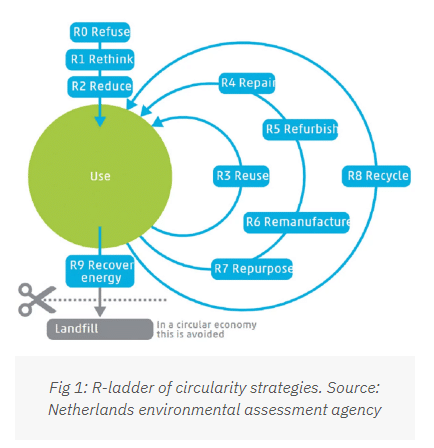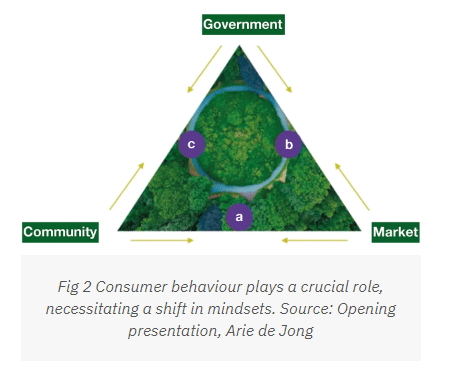
The 2023 International Congress for Battery Recycling (ICBR) was told there is a finite supply of raw materials and limited availability. Demand will outstrip supply, so recycling, innovation and efficiency are more important than ever. Chris Hale attended the two-day event in Valencia and shares his reflections.
We may be familiar with the current concept of the Four R’s for Green Living: Reduce, Reuse, Repurpose, Recycle. The concept, of course, is applied to a battery circular economy, although these days it can now be widened in scope to more like that of an ‘R’ Ladder (Fig 1): Refuse, Reduce, Reuse, Repair, Refurbish, Remanufacture, Repurpose, Recycle. All aspects essential to tackle the challenge of material supply and wastage.
That being said, there are still fundamental challenges in adopting these approaches. The push-and-pull of public demand vs concerns; market-drive vs wariness; and government support vs popularity.

As Fig 2 demonstrates, although consumer behaviour plays a role in shifting mindsets it may not believe there is enough support from businesses or government. Businesses are concerned that what they produce will not be bought and governments are concerned with public support and re-election. Ultimately, what results is a roadmap that is slow to ensure change.

What can be highlighted though is that, even though regulation is being put in place, individual countries or states are seeing holes that still need to be addressed, even if change is slow to implement.
The marked divide, as it were, between EU and US legislation, for example, shows the mounting problems being faced where recycling is slow to take off. Not all states in the US are aligned on the same policies and some states are slower or faster to adopt change.
The problem areas are not just with concerns about large automotive battery systems, however, as it is with the smaller, more portable batteries. The US, where regulations are state-by-state and vary across the board, are slowly expanding coverage of the North American ‘Extended Producer Responsibility’ (EPR) battery laws, addressing; safety, recycling, transportation, and storage/fire codes. Interestingly though, these laws are relatively new and only cover a few states, the ones as mentioned above, more aligned to the needs of better battery legislation. The coverage, it should be noted though, is mainly for portable battery types typically under 2kWh.
So where does this leave the issue of material supply and recycling in countries such as the US? Well, put simply, it leaves it in the hands of unregulated or illegal disposal. Undeclared waste shipped to Asia. Instances of containers with used/waste batteries of all types bound for Asia, are not all being declared as dangerous goods. Instead, containers may be marked as “synthetic resins” or “computer parts” as an example from one documented instance following a container fire. Container fires of undeclared batteries are, and will continue to be, a problem, until legislation rules are tightened.
The upside, however, is that there are more not-for-profit and industry-funded organisations, focused on providing collection centres to handle issues of improper disposal. Safety and transportation costs are still big issues though, hampering roll-out, which also lends to a rise in counterfeit and improper re-use. Economies-of-scale are important and adoption will only increase if costs and safety can be better addressed.
Source: BEST, November 10, 2023